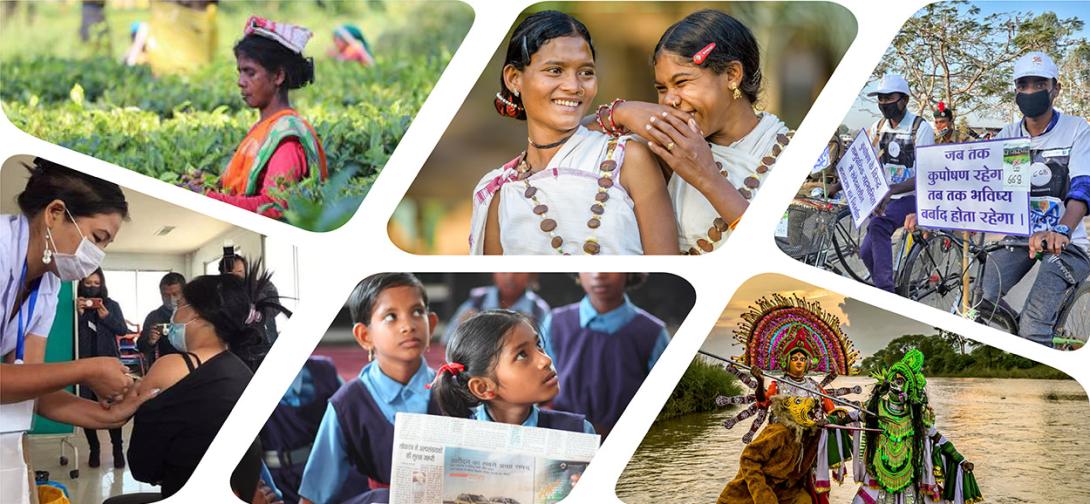19 Traditions and Practices to Boost Immunity
COVID-19 is an infectious disease caused by the novel coronavirus (nCoV). It affects the respiratory system in humans with symptoms such as fever, cough and difficulty in breathing in serious cases. More than 1.52 million people in about 212 countries have been reported to be suffering from the disease as of 10th April, 2020 and the number of affected people is increasing further. The seriousness of this disease is well understood as several people across the world have become its victims.
The disease spreads primarily through contact with an infected person. When an infected person coughs or sneezes, others standing nearby may inhale the virus and get infected. Virus droplets falling on surfaces or objects can also spread the disease. People may get infected if they touch such a contaminated surface or object, and then touch their eyes, nose or mouth. Neither has a vaccine been developed to fight the virus nor does any proven medicine exist to treat the patient suffering from the virus attack.
Regulating person-to-person contact to an absolute minimum level is the only way to control the spread of the disease. In that direction, appropriate guidelines have been issued by the Government. In addition, lockdown has been applied for a specified period which needs to be strictly followed. Some of our age-old traditions and practices are highly relevant in the current situation. Namaste, our way of greeting each other while maintaining a distance, has been appreciated by several prominent world leaders.
Furthermore, our traditional food intakes are based on judicious use of tulsi (basil) and pudina (Mint) leaves, turmeric, ginger, black pepper, cinnamon, cumin, coriander and other Ayurvedic herbs and spices which boost the body’s immune system to fight a disease. Eating organically-grown fresh vegetables and fruits is another practice for keeping a good health. Consumption of some specific food items such as Til (sesame seeds), in the form of Tilkoot or Gajak or otherwise, particularly during the winter season and also the use of gur or jaggery as a sweetener are associated with important health benefits.
The practice of putting Neem bark in an earthen pot with water and drinking that water for a few days in the month of Chaitra strengthens immunity. Eating food on Pattal or fresh banana leaves is also a healthy tradition. The use of mitti ke bartan is highly advantageous. Furthermore, drinking water stored overnight in a Tamba (copper) pot is beneficial in maintaining good digestion. The practice of eating food after washing hands and legs and without sharing the cutlery provides health benefits. Equally important is the regular practice of Yoga Asanas which keeps us fit and cheerful. Our rich heritage of classical music has therapeutic effects and brings much-needed mental peace.
Construction of house as per Vastu Shastra, a traditional science of architecture, facilitates better natural ventilation and more entry of sunlight inside the house, thereby creating a healthy living environment for the family. Also, burning of kapur and Dhuna in the evening contributes towards maintaining a healthy environment in the house. The traditional etiquette of leaving footwear outside the house before entering the premises ensures cleanliness and protection from external pathogens.
The ancient ritual of taking dip in the clean water of the Ganges, the Godavari and other rivers before sunrise is relevant even today for cleaning the body. Bathing in natural Garam Kund (hot springs) is also beneficial for us. Offering water to the Sun in early morning is another practice which provides significant health benefits. The tradition of worshipping nature motivates us to protect it for maintaining a clean, green and healthy environment. In addition to that, staying close to the nature at a young age, as was followed in the Gurukul parampara, enhances the capability to live in a tough environment.
It is a fact that prevention is better than cure. The traditions and the practices will neither cure nor prevent COVID-19, but they can help boost our body’s defense-system against illnesses. For the purpose, nineteen traditions and practices, which have been listed in the Paper, may be useful. However, we must follow the guidelines issued by the Government for safety against COVID-19 and take care of our physical and mental wellness in order to put a safe distance between ourselves and the coronavirus. Even for following our traditions and practices, we should take the guidance of qualified experts/medical professionals for achieving the desired results.
*Jitendra Kumar is Adviser and Rishika Surya is a Young Professional, NITI Aayog. Views expressed are personal.
 National Portal Of India
National Portal Of India 


